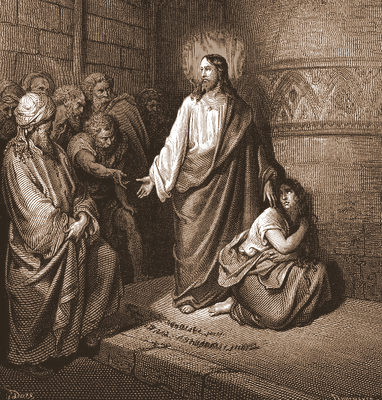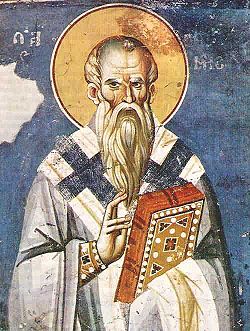[This is an extended and more in-depth version of the one available on the Knights of Columbus, Tonti Council's Website]
My dear brothers and sisters in Christ,
As I was praying with my rosary I began
thinking about what it means to be a Knight of Columbus [an all-men
group who dedicate themselves to fraternity, charity, support of
their local churches, and support of priests and bishops]. I would
similarly like you to think about what it means to be an adult and
member of our Church. The qualities of loyalty, perseverance, and
courage come to mind quickly. But as knights of our holy Catholic
Church we are called to have an additional set of virtues which are
faith, hope, and charity.
 |
| Check them out at their website: KOC |
We and the Church by our efforts do a
great deal of good, and I think we should be proud of that fact.
Nevertheless we can also point to times when we're weak, forgetful,
and sinful. This is where God comes in—he is our strength, our
sword, and our shield. He gives us many personal graces but His
greatest gifts are the Holy Eucharist and the other sacraments.
And the key word here is that they're
gifts. We don't have to pay for them and sometimes we feel like we
don't deserve them but, all the same, they are given for us to take.
 |
| The Sacraments founded on the Source of Life. |
Now the sacraments Baptism, Marriage,
Anointing of the Sick, Confirmation, and Holy Orders are not so much
our concern here. What I want to focus on is the Eucharist and
Confession/Penance/Reconciliation. Now, I trust all of us regularly
attend mass—if not I encourage you wholly!— so my sincere urging
this time will be to accept and embrace the gift of Confession.
Many of us readily accept the joy of
Baptism and Marriage, and many of us stand before the altar to
receive our Lord, but so many of us run away from the Sacrament that
was central to Jesus' earthly ministry—that is to say forgiveness.
We all
know the command that Jesus gave to His whole Church: go and
baptize all nations in the name of the Father, Son, and Holy Spirit.
In this commission we are all 'ones who are sent,' which is to say
apostles and disciples.
But Jesus gave a command to His
priests, his Apostles specifically chosen from among the people just
as the elders of Israel were assembled by Moses (cf. Numbers
11:16-17). This time, however, it was not merely a prophet but the divine Word that selected these men.
For those who would doubt the
priesthood of the Apostles, her special function, and the validity of their successive line, consider the following:
He chose twelve men, eleven who
remained, to reveal the Word to all by their preaching and priestly
ministry. For Christ told them at His last supper “whoever receives
the one I send receives me” (Jn 13:20). He selected them from among
the people to reveal the meaning of his teaching and to be leaders to
those they gathered. As they spread the Word, they also laid their
hands and selected from among the many communities men of sound
character and true faith to carry on their work. They had the people
assemble those from among their own who were “filled with the
Spirit and wisdom” (Acts 6:3) so they might be “appointed” for
a specific task. Then the Apostles “prayed and laid hands on them”
(6:6). These men here were deacons but priests (and even bishops)
were also selected from the line of the Apostles. For St. Paul tells
Timothy (a bishop himself) to “stir into flame the gift of God
that you have through the imposition of my
hands” (2 Tim 1:6). That gift is the priesthood specific to the
Apostles. Even Paul himself was “appointed [by Christ] as preacher
and apostle and teacher” (1:11). Furthermore he praises presbyters
[Greek word for priest or elder] who preside well. All the same he
warns him, “do not lay hands too readily on anyone [so as to confer
this priesthood on them]” (1 Tim 5:22).
 |
| The seven men first chosen by the Apostles, men whom they laid their hands upon. |
 |
| A tradition which continues today. |
Truly, let anyone who denies a specific
and holy priesthood among the faithful consider these words.
As
such Christ selected his Apostles from among the many others he met
and set them apart. Christ commanded them: Go and forgive the sins of my people and
lead them to me. Be to them as I am to you (and so share the burden
of my mission in a special way), give them my Body and Blood and give
them forgiveness of their sins.
The Apostles stand as both a
representation of mankind in that they are and were like us: weak,
fearful, and doubtful. But they stand apart in that they were raised
by Christ to bear His name and participate in his royal priesthood.
He “gave them authority over unclean spirits and every illness”
(Mt 10:1) and to give this gift freely (cf. 10:8). Furthermore, when
Christ forgave the sins of the paralytic those around him questioned
him and accused him of blasphemy. Yet to prove that He could forgive
sins he healed him as well. But, at the end of this passage it
states: “But the crowds, seeing this, were awestruck and glorified
God who gave such authority to men”
(my translation from the Greek, Mt 9:8). A fuller treatment is
necessary, but not here. For our purposes it is worth reflecting on
why the plural was used by Matthew and that the authority in question
was the forgiveness of sins.
 |
| All that effort and Christ decides to heal him of his sins first. |
This is where Confession is so
important. This is the sacrament of healing, the healing of one's
sins. And this sort of healing was preferred to the healing of the
body (cf. The story of the paralytic, Mt 9:1-8). My brothers and
sisters, it is easy to be courageous against a shared threat and it
is easy to be courageous against something from the outside. But even
truer courage comes from recognizing the threat inside of us: the
stain of sin and how we, at times, let the enemy into our gates.
Yet as knights, that is to say faithful
Catholics, we are to protect our priests and protect those who are as
“sheep among wolves.” We can only be strong when we are weak,
that is to say that we must humble ourselves. We can only show others
how to convert their hearts when we convert their own. By allowing
Christ into our hearts through the Sacraments we are transformed by
that grace. We allow, humbly and with joy, simple and concrete
realities to effect a great change in us. For in the same way Christ
effected a great change in the world by adopting our frail and small
humanity—something we received with joy.
Jesus said that we should not fear
those who harm our body but rather the Enemy who can harm our soul
(cf. Mt 10:28). Confession is a gift that remains unopened and
unused, especially here in the United States and Europe. If no one
goes, no one cares or notices. I encourage you all to strengthen your
soul by a regular reception of the Eucharist and an attempt to
regularly receive this great sacrament.
As we walk before the altar we ask for
the greatest gift ever given. In Confession we are prepared to stand
before the altar, we are instructed by holy priests (find one you
know and trust!) to recognize sin and our sinfulness, and we are
given Christ's peace. How often is it that we believe we know our own
hearts—yet it turns out we live in self-doubt, darkness, and
ignorance. This is the true gift of friendship, of good people, and
good priests! They will help you know yourself.
 |
| "Show me the way to Ars and I will show you the way to Heaven." ~St. John Vianney |
A priest, one whom you can trust and
one whom you can be honest with will do more for your soul than any
personal prayers could accomplish. Personal prayer should never be
abandoned, but neither should your priests—let alone the whole body
of the Faithful!
Remember that “he who conceals his
sins prospers not, but he who confesses and forsakes them obtains
mercy” (Prov 28:13). How easy it is to 'conceal our sins' by
keeping them to ourselves, saying them only in our head. Even this
can be hard. How much harder, yet more freeing, is it to confess
openly and in person? But the person you are confessing to is one
completely and readily willing to forgive those who seek conversion
and absolution. This is because he was commissioned by Christ,
installed by His holy Apostles through Him, to help 'share the burden
of the people of God.'
Stand up for those who are afraid and
ignorant of their own sinfulness and confront your own. It is by the
strength of all the Sacraments of the Church—gifts of God—that we
will flourish!
Yours in Christ and a sinner like you,
M










